
Taller Astrafilia is a Mexico City-based distillery that merges gin-making tradition with Mexico’s amazing botanical diversity. For their Granicera line of gin, Taller Astrafilia uses grain alcohol from endemic corn varieties from the state of Chiapas, along with juniper berries, of course, and the essences of over 20 regional plants from central Mexico. The name “Granicera”
is a term used “water witch” in the Estado de Mexico and surround states is a reminder that for thousands of years women — as healers, curanderas, chemists, midwives, and more — have been the principal researchers and keepers of nature’s wisdom regarding the use and care of our plants, our water, and our land.
Five years ago, partners Heráclito López and Andrés Rubio Isunza created this micro-distillery in Mexico City to produce Granicera gin built on an appreciation for the flavors of Mexico. Plants and, perhaps more specifically, Mexico’s vast biodiversity are the main pillar of Bruja de Agua’s work. This, along with the traditional knowledge and the herbalist practices of Mexico’s
oldest communities, have guided them to work directly with small-scale farmers in central Mexico to obtain all the flowers, seeds, roots and plants used in Granicera production. They “listen” to the land and use only what is seasonally available to add subtle accents to their formulas. The process itself uses a gentle maceration and vapor infusion in a copper still to render small batches of a uniquely flavored gin.
Granicera Perfil Especiado
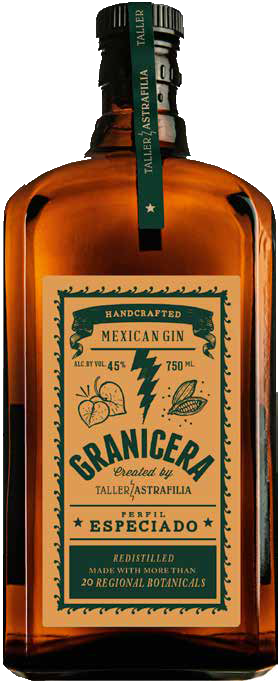
Base Alcohol: Native Corn Alcohol from Chiapas
Accent: Spicy
45% Alc./Vol.
Botanicals:
Predominant: Juniper berries
Accent: Cacao, Hoja Santa, Cinnamon,
Regional: Damiana, Angelica, Chamomile, Lemon Verbena, white sage
Classic: Lavender, Hops, Spearmint, Rosemary, Basil, Licorice, Allspice, Nutmeg
Granicera Perfil Cítrico
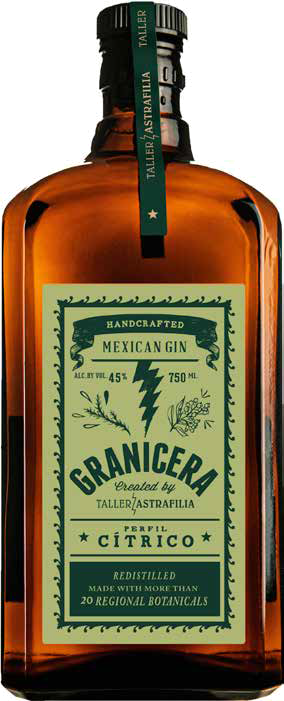
Base Alcohol: Native Corn Alcohol from Chiapas
Accent: Citrus
45% Alc./Vol.
Botanicals:
Predominant: Juniper berries
Regional: Allspice, avocado leaf, cacao, damiana, lemon verbena, Mexican agastache (toronjil), Mexican pepperleaf (hoja santa), Mexican tarragon (pericón), papalo, pennyroyal.
Classic: Cardamom, chamomile, coriander seed, licorice, nutmeg
Granicera Process
Granicera production starts with an alcohol made from native corn, the most representative food of Mexico. Mexico is considered the cradle of maize which was first cultivated over 7,000 years ago then spreading to North and South America and has maintained a vast array of diverse corn species, with 64 recognized strains, and over 21,000 regionally adapted varieties.
Most Mexican corn farmers still save their own seeds and plant native strains to keep this biodiversity alive.
On top of this, Granicera’s ingredients include more than 30 botanicals, many of which are emblematic of Mexico’s vast gastronomic tradition, to give body to the base formula, Production involves obtaining flowers, seeds, roots, and plants from growers in Mexico’s central region,
such as Atlixco and San Francisco Huilango in Puebla, Ozumba in Estado de Mexico, and even some from the further away states of Oaxaca, Tabasco, and Chiapas.
Granicera gins are macerated with more than 30 botanicals in corn alcohol for one month, then double distilled in small batches using copper stills.
Currently, Granicera gins come in four accents of which only the first two are currently available in the US: Cítrico, Especiado, Floral and Herbal

Corn farmers in the highlands of Chiapas provide the corn and grain alcohol that serves as the base for Bruja de Agua
gins
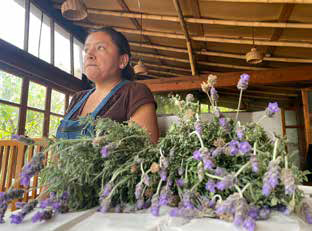
Herbs and botanicales are sourced from vilages in farming states surrounding Mexico city such as Atlixco, Puebla
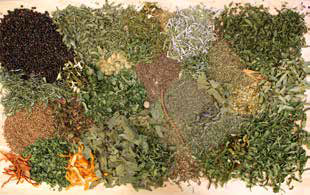
Predominant regional botanicals: Allspice, avocado leaf, cacao, damiana, lemon verbena, Mexican agastache (toronjil),
Mexican pepperleaf (hoja santa), Mexican tarragon (pericón), papalo, pennyroyal.
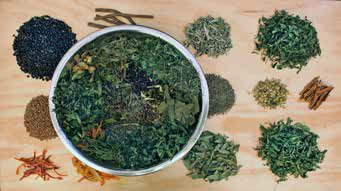
Classic botanicals: Cardamom, chamomile, citrus zest, coriander seed, juniper, licorice, nutmeg.
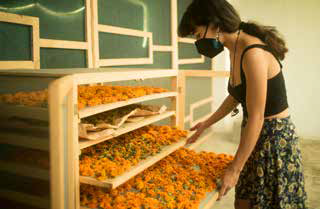
Plants are carefully selected, processed by hand using environmentally friendly cleaning agents.
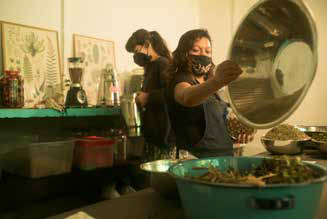
The botanicals are then shade-dried to preserve flavor and medicinal properties.
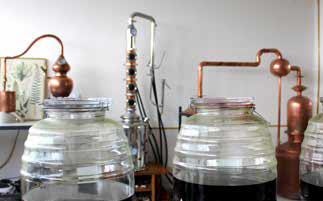
Maceration – Botanical ingredients are steeped in corn alcohol for one month without exposure to light, to extract the
maximum benefits.
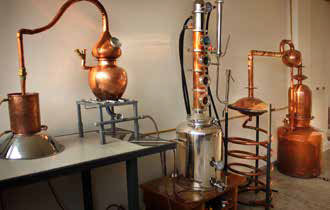
Distillation – A double-distillation is carried out over low heat in copper stills.
